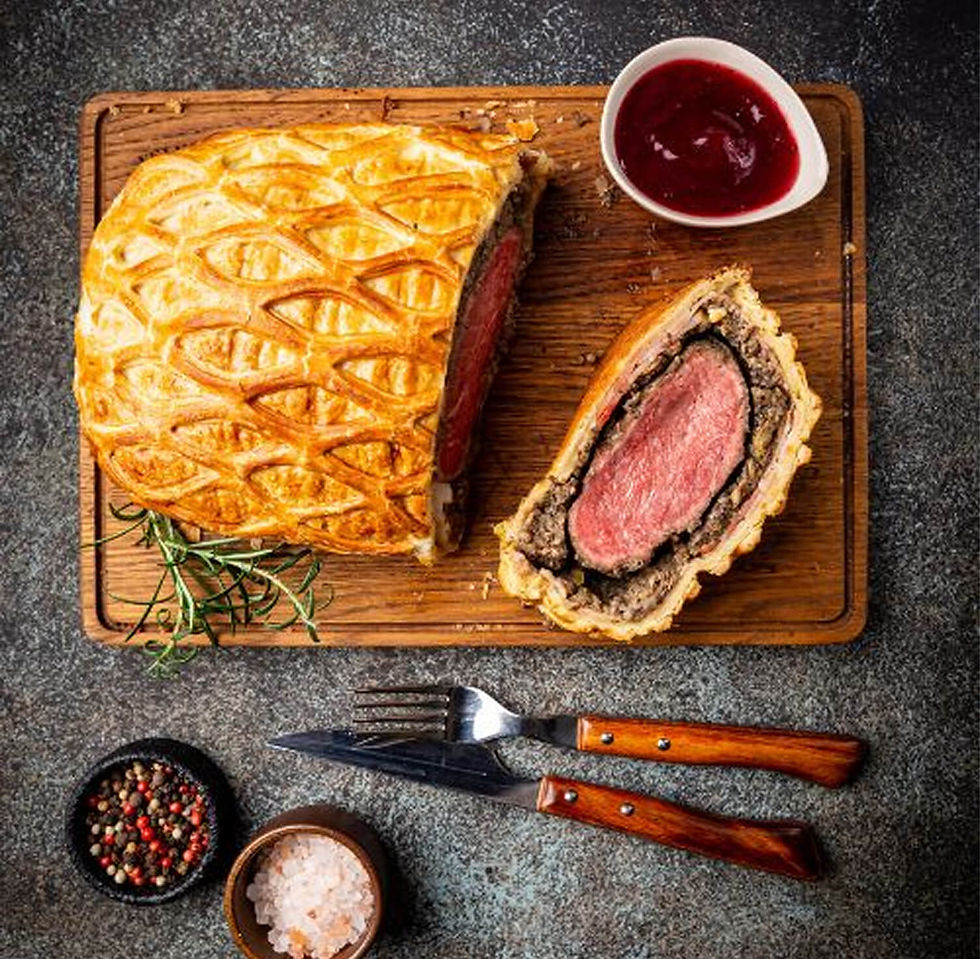Peak Hosting Culture: Caribbean Hospitality and Beyond
- Janelle S Powell

- Apr 2, 2025
- 3 min read
Updated: Jun 9, 2025

Recently, I got caught up in a fascinating online discussion that really got me thinking about my Caribbean upbringing, specifically about our unique "hosting culture." It all started when I commented on a thread about Caribbean people being natural hosts, and it just snowballed from there!
As I mentioned, we were raised with the idea that it was practically a cardinal sin to have a guest come over and not offer them the absolute best. We always had a stash of beverages and alcohol "just for guests," ready to go at a moment's notice. And it wasn't just about drinks; it was about the whole experience.
Think about it:
Special Spaces: Remember those seating areas that were practically off-limits unless we had company?
Reserved Treats: The special snacks and drinks, tucked away for that unexpected visitor.
Finest Linens and China: The good bedding, towels, and the china tucked away in the hutch, only to be brought out for special occasions.
It was a culture of always being prepared, of anticipating the needs of our guests and going above and beyond to make them feel welcome.
This resonated with so many people, not just from the Caribbean, but also from African and Black Southern communities. We shared stories of how this tradition still lives on today. I can't help but laugh when my son sees me pulling out the "good" plates and automatically assumes we're having company.
What really struck me was how many women shared stories of growing up with limited resources, yet their families always managed to create something special for guests. It was about turning "nothing into something," about making people feel loved and at home, regardless of our circumstances.

To understand the roots of this "peak hosting culture," we need to look back at the rich histories of both Africa and the Caribbean. In many African societies, hospitality is deeply ingrained, reflecting communal values and respect for elders and visitors. Hosting was, and is, a way to build and maintain social bonds, a practice that has been passed down through generations. Think of the traditions of offering kola nuts in West Africa or the elaborate feasts prepared for guests across the continent. These practices emphasized the importance of making visitors feel valued and honored.
Similarly, in the Caribbean, these African traditions blended with indigenous customs and later, European influences, to create a unique approach to hospitality. The history of the Caribbean is marked by resilience and resourcefulness, and this translated into a culture where even the simplest meal could be transformed into a beautiful and delicious feast for guests.
Of course, not everyone shared these warm memories. Some people expressed resentment towards this culture, the idea of reserving the "best" for others and not enjoying it ourselves. It's a valid point, and it sparked an interesting conversation about balance and self-care.
This whole discussion was sparked by the commentary around the Netflix show "With Love, Meghan." Many Black women, particularly those of Caribbean, African, and Southern American descent (and beyond), collectively relate to the show because we were raised in a culture where being a great hostess was instilled in us from childhood. It was a rite of passage, a fundamental part of our upbringing, shaping us as we transitioned into adulthood.
While I can laugh about some of the more extreme examples (like as a child, I remember having a dresser drawer dedicated to new underwear and nightgowns, always ready for those unexpected guests, hospital visits or trips abroad!), I'm ultimately grateful for these traditions. They taught me the importance of showing care, of finding joy in the little things, and of making others feel special. These lessons have shaped me into the person I am today, and I hope to pass them on to my own children.
So, what are your thoughts? Did you grow up with a similar hosting culture? Share your stories in the comments below!
1
Searing the Beef
Sear beef fillets on high heat for 2 minutes per side to form a golden crust. Let it cool before proceeding to keep the beef tender.
1
Searing the Beef
Sear beef fillets on high heat for 2 minutes per side to form a golden crust. Let it cool before proceeding to keep the beef tender.
1
Searing the Beef
Sear beef fillets on high heat for 2 minutes per side to form a golden crust. Let it cool before proceeding to keep the beef tender.
1
Searing the Beef
Sear beef fillets on high heat for 2 minutes per side to form a golden crust. Let it cool before proceeding to keep the beef tender.
Notes



1
Season the good fresh beef fillets with salt and black pepper. Heat olive oil in a pan over high heat and sear the fillets for 2 minutes per side until it fully browned. Remove the beef from the pan and brush with a thin layer of mustard. Let it cool.



1
Season the good fresh beef fillets with salt and black pepper. Heat olive oil in a pan over high heat and sear the fillets for 2 minutes per side until it fully browned. Remove the beef from the pan and brush with a thin layer of mustard. Let it cool.



1
Season the good fresh beef fillets with salt and black pepper. Heat olive oil in a pan over high heat and sear the fillets for 2 minutes per side until it fully browned. Remove the beef from the pan and brush with a thin layer of mustard. Let it cool.



1
Season the good fresh beef fillets with salt and black pepper. Heat olive oil in a pan over high heat and sear the fillets for 2 minutes per side until it fully browned. Remove the beef from the pan and brush with a thin layer of mustard. Let it cool.
Instructions
Quality Fresh 2 beef fillets ( approximately 14 ounces each )
Quality Fresh 2 beef fillets ( approximately 14 ounces each )
Quality Fresh 2 beef fillets ( approximately 14 ounces each )
Beef Wellington

Beef Wellington
Fusion Wizard - Rooftop Eatery in Tokyo
Author Name

Beef Wellington is a luxurious dish featuring tender beef fillet coated with a flavorful mushroom duxelles and wrapped in a golden, flaky puff pastry. Perfect for special occasions, this recipe combines rich flavors and impressive presentation, making it the ultimate centerpiece for any celebration.
Servings :
4 Servings
Calories:
813 calories / Serve
Prep Time
30 mins
Prep Time
30 mins
Prep Time
30 mins
Prep Time
30 mins













Comments